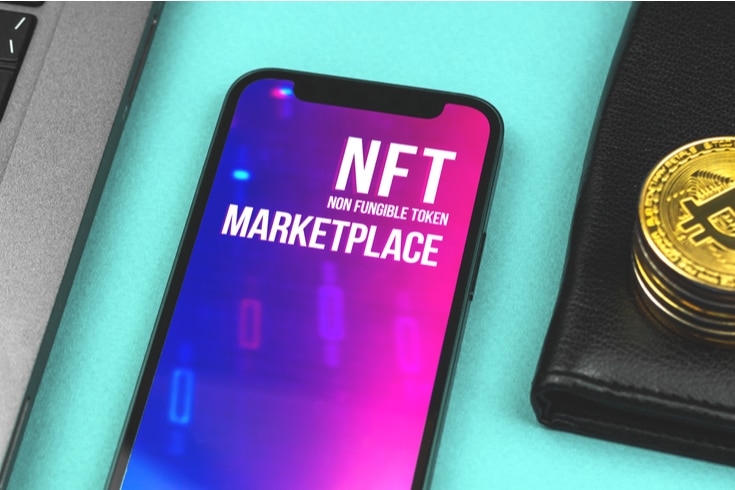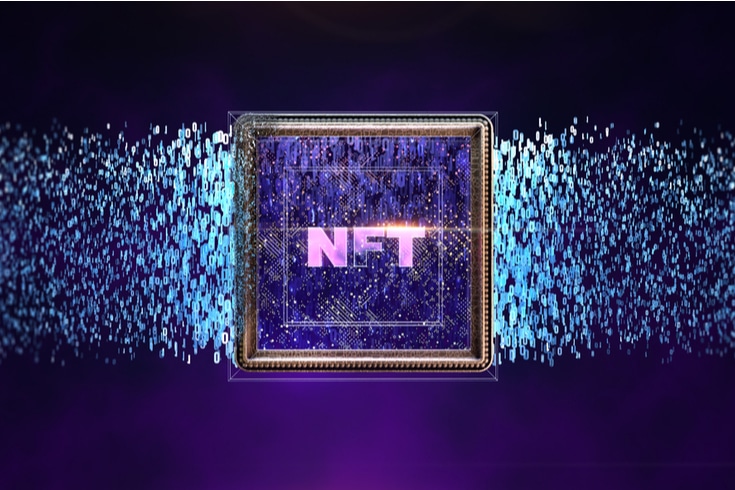Guidelines for NFT Random Sales: Types that do not fall under gambling crimes

The NFT business has experienced significant growth in recent years, primarily in Europe and the United States. In 2021, the transaction volume of NFTs (Non-Fungible Tokens) increased by 215 times compared to the previous year, leading to a rapid expansion of the NFT market.
The random sale service utilizing NFT has gained popularity, but many startups in Japan face obstacles due to the lack of developed laws and regulations. To address this issue, five NFT-related organizations (BCCC, JCBI, JCBA, JBA, C-SEP) came together and created the “NFT Random Sales Service Guidelines“ on October 12, 2022.
In this article, we will outline the forms of random sales that do not fall under the category of gambling as per these guidelines. Additionally, we will elucidate the factors that business operators must keep in mind from the standpoint of safeguarding consumer rights.
Introduction to NFTs

Web 3.0, including Metaverse, is focused on blockchain technology (distributed ledger technology), which distributes and shifts various activities performed on the internet from traditional centralized platforms to individuals, enabling “distributed management”. This is creating a new world marked by “value proof” and “transparency”.
The term NFT stands for Non-Fungible Token. The word “Token” in this context represents an electronic verification issued through blockchain technology.
The utilization of blockchain technology by NFTs has created an obstacle for the duplication or replication of digital creations. With the emergence of NFTs in the past few years, it has become feasible to confirm the legitimacy and transaction records of digital assets, and blockchains are functioning similarly to an appraisal process. Essentially, it has opened the door for digital data that cannot be materialized to possess value based on scarcity.
In essence, NFTs now serve as a representation of the individuals who own distinct crypto assets, digital artwork, or tangible assets. Although there is technically no notion of “ownership” in the virtual realm of crypto assets, the term “possession” will be utilized to establish the concept.
NFTs are only tradable by individuals who possess the private key managed by the blockchain wallet, thus enabling monopolization. Additionally, the blockchain records the owner information and transaction history, allowing for the transfer of ownership rights to another individual if desired.
Types of Random Sales for NFTs
The term “random type sales of NFT” refers to a sales method for NFTs where the specific NFT provided is determined randomly. According to the guidelines, there are four classifications for random sales, which are as follows:
1. Gacha sales
A sales method has been established wherein one NFT is selected at random from a selection offered by the sales company. Once the user pays the purchase price, the content of the acquired NFT is revealed.
2. Package sale
A sales format known as “blind box” combines multiple NFTs into a package with unknown contents. Users pay for the package before discovering the content of the provided NFT.
3. Sales of products with variable designs.
A sales format is available where multiple NFTs feature the same design. The user has the freedom to select the NFT that they wish to purchase from among the available options. Once the purchase consideration is paid, the design of the NFT purchased will change and be disclosed to the user.
4. Random Generation Sales
A sales method in which an NFT is generated using a program that randomly combines image data divided into parts, and the contents of the generated NFT are revealed after the user has paid for the purchase.
Source:”Guidelines for NFT Random Sales”
Do NFT Random Sales Constitute Gambling?
There are possibilities that NFT random sales constitute gambling. This chapter will provide an explanation on whether the sale of NFTs in a random package format constitutes a gambling offense, as well as other cases where NFTs are sold randomly.
Requirements for Gambling Offenses
The crime of gambling is outlined in the Criminal Code of Japan.
Article 185 (Gambling)
A person who gambles is punished by a fine of not more than 500,000 yen or a petty fine; provided, however, that the same does not apply to a person who gambles occasionally provided for recreational amusement.
Article 186 (Habitual Gambling; Running a Gambling Place for the Purpose of Gain)
(1) A person who habitually gambles is punished by imprisonment for not more than 3 years.
(2) A person who, for the purpose of profit, runs a place for gambling or organizes a group of habitual gamblers is punished by imprisonment for not less than 3 months but not more than 5 years
To be charged with a gambling offense, The requirements are as follows:
The term “gambling” is defined as an activity where two or more individuals (1) win or lose by chance, (2) place property or property interests at risk, and (3) engage in competition for gain or loss. However, gambling solely for entertainment purposes does not constitute a criminal offense.
Exclusions apply to cases specified by Japanese law, even if they fall under (1) to (3) above.
(1) The term “accidental victory or defeat” refers to a situation where the outcome is determined by chance, rather than by the parties’ ability to foresee or control the situation.
(2) The term “property or property interest” encompasses more than just money. It includes all objects that hold a certain value, such as assets and services like land, cars, branded goods, and trading card games, among others.
(3) The term “Contest for gains and losses” refers to a situation where one party gains property while the other loses it, creating a mutual gain and loss relationship. However, it should be noted that this does not include sweepstakes or lotteries.
It is stipulated that the act of gambling shall not be considered a crime if it is solely for the purpose of temporary entertainment. This provision serves to protect individuals from being penalized for engaging in non-punishable conduct.
As per court precedents, the term “things used for temporary entertainment” refers to small items that are consumed for immediate entertainment purposes (Supreme Court Judgment, February 18, 1929). The legal stance, as per case law (Supreme Court Judgment, October 7, 1948), is that the proviso does not extend to gambling involving any amount of money, no matter how small. (This is a translated version of the original Japanese judgment and we cannot guarantee the accuracy of the meaning or content.)
Success and Failure of NFT Package Sales and Gambling Crimes
When selling NFTs as a package, there is a possibility that the type of NFTs received and the rarity of the NFTs that can be resold at a high price may be subject to chance and the success or failure of other buyers. This is an inevitable occurrence.
Some argue that NFT package sales could constitute gambling offenses under these circumstances. To establish a “contending for gain and loss” relationship under (3), two requirements must be met: first, one party’s profit must come at the expense of the other’s financial burden, and second, the purchased package must lack value proportional to its selling price.
In principle, NFT package sales cannot be classified as a profit or loss arrangement between the seller and purchaser, or between multiple purchasers.
Quoted from: “Ministry of Economy, Trade and Industry of Japan “
Success or Failure of Random Type Sales and Gambling Crimes Excluding NFT Package Sales
Next, we will explain the relationship between random type sales (gacha sales, sales with different designs, random generation sales), excluding package sales, and gambling crimes. The distributor has the discretion to determine the selling price of NFTs in the primary market.
In individual sales of random items, the sales company will receive funds equivalent to the selling price, and the purchaser will receive an NFT equivalent to the purchase price. Therefore, it is generally understood that there is no “profit or loss sharing” relationship regarding the property.
Careful consideration of the business model is necessary when there is a possibility of a “competing for gain or loss” relationship between the sales company and the user, as it may lead to the establishment of a gambling crime.
Establishing an NFT Secondary Distribution Market

When a sales company engages in random type sales of NFT and operates a secondary distribution marketplace, the relationship with gambling crimes must be considered.
In the realm of market transactions, the primary market pertains to the exchange between distributors and users. On the other hand, the secondary market concerns transactions made solely between users. It would be impractical to perceive the market as a unified entity based on their respective relationships.
It is important to note that the determination of resale prices in the secondary distribution market is based on different factors as compared to the pricing of NFTs in the primary distribution market. As such, the unique characteristics of each market must be taken into consideration when assessing any potential regulatory requirements.
In contrast, if the seller sets up a secondary distribution market and allows purchases at a price lower than the selling price, there is a risk of being charged with gambling as the selling and buying occur in conjunction with each other.
Setting separate selling price in NFT primary market distribution.
When a sales company establishes a unit price for random-type NFTs in the primary distribution market, it is imperative to base the price on the extent and presence of deviation from the random-type sales price.
There are several measures that can be considered.
(a): When selling NFTs of random types individually, if they are all priced the same regardless of rarity, there is no possibility of “competing for profit or loss” of the property, even if the sales price of the random types is set freely.
(b): On the other hand, in the case of selling NFTs separately for random type sales, it is essential to ensure that the random type sales price does not exceed the lowest unit price among the separate sales prices if there is a difference between rarities.
If NFTs that were originally sold randomly in the primary distribution market are later resold randomly in the secondary distribution market among users, there is a chance that a “zero-sum game” relationship could develop between the distributor and the user. Therefore, it is important for sales companies to exercise careful consideration when devising a business model for the secondary distribution market.
Consumer Protection Guidelines
There are specific considerations to keep in mind for individual business operators regarding consumer protection when conducting random sales of NFTs based on their unique business content.
Provision of Information
Denying a business operation solely based on an increase in transaction amount would not be appropriate. However, considering the legal interest in preventing the crime of gambling, it is important to ensure that sales methods do not excessively stimulate consumers’ gambling tendencies or provide inaccurate information about sales conditions. This is necessary to prevent any hindrance to rational decision-making.
When reviewing the text, it is important to take into account the following factors.
(a): When selling NFTs in the primary distribution market, it is advisable to avoid taking actions that result in no difference in the unit price of NFTs depending on rarity.
・Techniques that excessively advertise the high value of specific characters or give an unfair advantage to certain characters in the game can make consumers overly aware of the differing objective values of individual NFTs.
(b): When a sales company establishes both a random sales price and a distinct sales price in the primary distribution market, it is recommended to take note of the following considerations.
*Set the individual sales price at a price that is not significantly different from the price of a randomly selected sales type.
(c): Refrain from disseminating information that promotes gambling in a forceful manner, such as ads that unduly influence consumers to make purchases by insinuating that specific NFTs have high potential for future price hikes and speculative worth.
(d): In Japan, the Act against Unjustifiable Premiums and Misleading Representations considers the disclosure of expected issuance numbers and appearance probabilities for sales as misrepresentation, specifically misrepresentation of superiority or advantage. To avoid such misrepresentation, it is important to refrain from engaging in the following acts.
ex) Displaying the number of planned issuances higher than the actual number of planned issuances for a particular NFT
(e): Avoid engaging in the following acts, as they may result in consumers being charged an unreasonable amount to acquire the desired NFT, and may be considered misrepresentations under the Act on Premiums and Misleading Representations (specifically, advantageous misrepresentation and decoy advertising).
ex) Selling an NFT with a message that implies it will appear easily, despite setting its appearance probability to an extremely low level.
ex) Although it may not actually appear, it is marketed as if it will.
(f): Under the Act on Premiums and Misleading Representations in Japan, specific NFTs should avoid acts that constitute misrepresentation, such as misrepresentation of superiority and misrepresentation of advantage.
ex) Selling a product in a manner that alters its planned issuance quantity and appearance probability, without the consumer’s knowledge or ability to recognize the change, is prohibited.
Consideration for Minors
Minors lack the necessary decision-making ability and are prone to getting into costly troubles. Moreover, granting minors the right to cancel (Article 5, Paragraph 2 of the Japanese Civil Code) could result in the counterparty of the sales companies and secondary distribution markets to the transaction being disadvantaged. Hence, it is advisable to take necessary measures when it comes to confirming that a minor is utilizing the service.
Encouraging users to obtain parental consent is recommended, for instance, including a provision in the service terms mandating parental consent for using and purchasing NFT purchase services.
To promote fairness, it is recommended to establish a maximum cap on fees, including restrictions on the quantity and frequency of transactions.
Consultation with a Lawyer for NFT Sales
Up until now, we have provided an overview of the key elements outlined in NFT’s “Guidelines for Random Sales Service,” which were established on October 12, 2022.
In March 2022, the Japan Crypto Asset Business Association published the updated “NFT Business Guidelines.” NFT sales companies are required to comply with the legal aspects of NFTs and related products and services. To sell the intended NFT, it is crucial to analyze it in accordance with various Japanese laws, such as civil law, commercial law, and intellectual property law (copyright law, patent law, and trademark law). Therefore, it is essential to consider appropriate legal measures on a case-by-case basis.
To ensure compliance with the rapidly expanding and evolving NFT business, Web 3.0, and metaverse (virtual space), it is crucial to continuously verify and update these matters. When it comes to the business model of NFT sales, we advise seeking legal counsel to ensure proper and lawful business operations.
Guidance of Countermeasures by Our Office
Monolith Law Office is a highly skilled law firm that specializes in both IT, specifically the Internet, and law. Our firm offers comprehensive support to businesses involved in crypto assets, NFTs, and blockchains.
Monolith Law Office specializes in handling matters related to Crypto Assets, NFTs, and Blockchain.
Category: IT





















